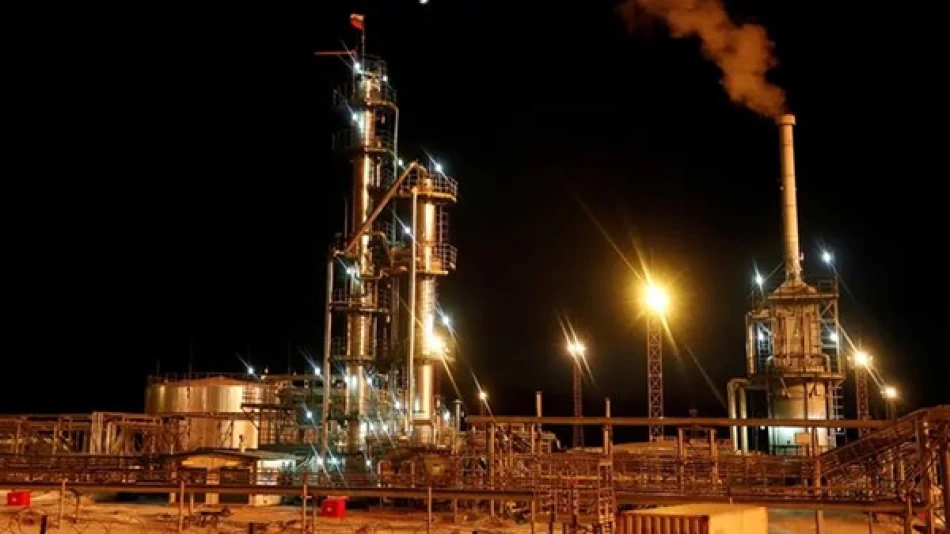
Russian Oil Refinery Halts Operations After Drone Strikes
Ukrainian Drone Strike Forces Major Russian Refinery Offline as Trump Pressures Moscow on Ceasefire
A Ukrainian drone attack has forced Russia's Novokuibyshevsk refinery—a key Rosneft facility processing 160,000 barrels daily—to halt operations since August 2, marking the first major strike on Russian refining infrastructure since March and coinciding with renewed U.S. diplomatic pressure for a ceasefire. The timing underscores how Ukraine continues to target Russia's energy backbone even as President Trump threatens "consequences" if Moscow doesn't agree to peace talks within 10-12 days.
Strategic Target Hit at Critical Moment
The Novokuibyshevsk refinery represents significant value in Russia's energy infrastructure, with an annual capacity of 8.3 million tons of crude oil. Industry sources confirm the attack damaged the facility's primary crude distillation unit (CDU-11), which handles 18,900 tons daily—the bulk of the plant's processing capability.
The facility had been operating at near-full capacity, processing approximately 18,000 tons of crude daily before the strike. Last year, it produced 1.10 million tons of gasoline, 1.64 million tons of diesel fuel, and 1.27 million tons of fuel oil—critical supplies for both domestic consumption and export revenue.
Ukraine's Evolving Energy War Strategy
This attack signals Ukraine's continued commitment to targeting Russia's economic lifelines, despite diplomatic overtures from Washington. Since the conflict began, Ukrainian forces have increasingly focused on energy infrastructure, recognizing that oil revenues fund Moscow's war machine.
The March 2025 precedent referenced suggests Ukraine had previously paused such large-scale refinery attacks, possibly due to international pressure or tactical considerations. The resumption now indicates either renewed strategic priority or response to recent battlefield developments.
Economic Impact Beyond the Refinery
Rosneft, Russia's state oil giant, relies on facilities like Novokuibyshevsk to maintain domestic fuel supplies and generate export revenue. The shutdown, even temporary, tightens Russia's refining capacity during a period when Western sanctions have already complicated operations and equipment maintenance.
The timing is particularly challenging as the second processing unit (CDU-9) was already scheduled for maintenance between August and early September, meaning the facility would face extended downtime regardless of repair timelines for the damaged primary unit.
Diplomatic Pressure Meets Military Reality
The attack comes as Trump's special envoy Steve Witkoff prepares to visit Russia following his current trip to Israel. Trump's 10-12 day ultimatum to Moscow creates an interesting dynamic: Ukraine demonstrates its continued capability to inflict economic damage even as Washington pushes for negotiations.
This approach mirrors Ukraine's strategy throughout the conflict—maintaining military pressure while diplomatic channels remain active. The energy sector attacks serve dual purposes: immediate economic impact and leverage in potential peace talks.
Market and Strategic Implications
For global energy markets, individual refinery strikes typically have limited immediate impact, but they contribute to broader uncertainty about Russian supply reliability. The attack reinforces the vulnerability of Russia's energy infrastructure, despite air defense investments.
From Moscow's perspective, the strike complicates any ceasefire calculations. Agreeing to talks under Trump's timeline could appear as capitulation to pressure, while refusing risks both continued infrastructure attacks and potential U.S. policy escalation.
The incident illustrates how military and diplomatic tracks often intersect in modern conflicts—Ukraine's drone capabilities provide both tactical advantages and negotiating leverage, while international mediation efforts must account for ongoing military realities on both sides.
Most Viewed News

 Layla Al Mansoori
Layla Al Mansoori






